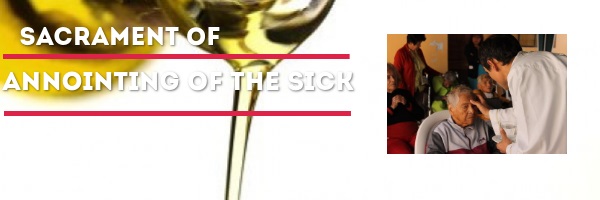
The Sacrament of Anointing of the Sick is a Sacrament of Healing. When the Sacrament of Anointing of the Sick is given, the hoped-for effect is that, if it be God's will, the person be physically healed of sickness; both physical and spiritual. But even if there is no physical healing, the primary effect of the Sacrament is a spiritual healing by which the sick person receives the Holy Spirit's gift of peace and courage to deal with the difficulties that accompany serious illness or the frailty of old age.
In the Sacrament of Anointing of the Sick, through the ministry of the priest, it is Jesus who touches the sick to heal them. The Rite of Anointing tells us there is no need to wait until a person is at the point of death to receive the Sacrament. A careful judgment about the serious nature of the illness is sufficient. A person can receive the Sacrament of Annointing of the Sick as many times in their life as necessary based on their circumstances including serious sickness, or scheduled operation, etc.
If the Anointing of the Sick is administered before death, the Lord gives the sacrament of the last rites to comfort us in our final days and prepare us for the journey ahead. Depending on the circumstances of the individual, these could include penance (or confession), confirmation (when lacking), anointing of the sick . . . and Viaticum (which is meant to be the last reception of Communion for the journey from this life to eternity). The most important part of the last rites is the reception of the Lord in one’s final Communion, also called “Viaticum” (Latin: that which you take on the road, i.e., food for the journey) This special Communion prepares us to travel with the Lord on the final part of our journey.